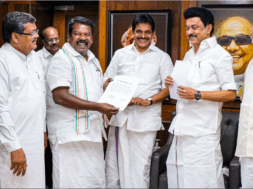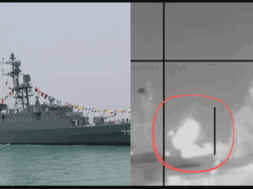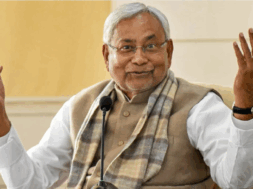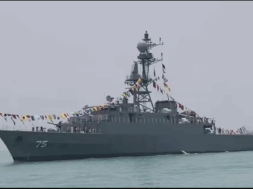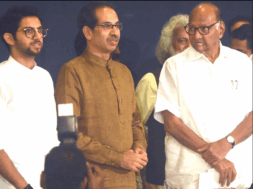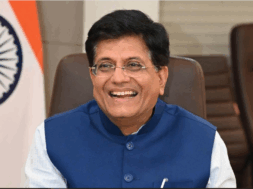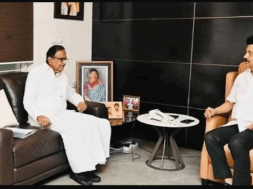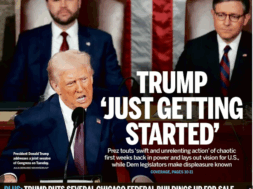
Khalistan: As Trudeau tries to woo back NDP, India strongly refutes Canada’s fresh claims
Virendra Pandit
New Delhi: Ahead of next year’s crucial parliamentary elections in Canada, India on Monday issued a sharp rebuttal to the Justin Trudeau government’s wild claims, described them as “preposterous imputations,” and rejected its allegations that the Indian High Commissioner to Ottawa was a “person of interest” in a murder investigation.
Ties between India and Canada nosedived after PM Trudeau, soon after attending the G-20 Summit in New Delhi in 2023, alleged Indian ‘agencies’ involvement in the killing of Hardeep Singh Nijjar, a Canadian Khalistani terrorist, in June 2023. India has repeatedly refuted these claims as “absurd” and “motivated,” accusing Trudeau’s government of indulging in vote-bank politics by pandering to pro-Khalistan elements in Canada.
In September, Trudeau’s pro-Khalistani partner, the New Democratic Party (NDP), led by separatist Jagmeet Singh, withdrew support from the Liberal Party’s government, which barely survives in the House of Commons. Trudeau is already facing anti-incumbency and strong opposition from Conservative Party leader Pierre Poilievre, who is likely to be the next premier. Jagmeet Singh is said to be a close associate of Gurpatwant Singh Pannu, the Sikh For Justice (SFJ) chief, who holds a dual citizenship of Canada and the US, spewing vitriol against India every now and then.
Now, Trudeau is likely to woo the NDP back into the fold. Hence his government is making fresh claims against India.
The bilateral diplomatic tension took a sharp turn recently when Canada reportedly named the Indian High Commissioner Sanjay Kumar Verma as a “person of interest” in its ongoing investigation into Nijjar’s death. India swiftly hit back, accusing Canada of maligning its officials without evidence and using “preposterous” claims to justify its failure to curb Khalistani extremism on its soil.
In a strongly worded statement, New Delhi condemned Ottawa’s diplomatic communication suggesting that the Indian High Commissioner and other Indian diplomats were implicated in a sensitive investigation. The Ministry of External Affairs issued a sharp rebuttal, stating, “The Government of India strongly rejects these preposterous imputations and ascribes them to the political agenda of the Trudeau Government that is centered around vote bank politics.”
“Since Prime Minister Trudeau made certain allegations in September 2023, the Canadian government has not shared a shred of evidence with the Government of India, despite many requests from our side. This latest step follows interactions that have again witnessed assertions without any facts. This leaves little doubt that on the pretext of an investigation, there is a deliberate strategy of smearing India for political gains,” the Centre’s statement read.
“High Commissioner Sanjay Kumar Verma is India’s senior-most serving diplomat with a distinguished career spanning 36 years. He has been Ambassador to Japan and Sudan, while also serving in Italy, Turkiye, Vietnam, and China. The aspersions cast on him by the Government of Canada are ludicrous and deserve to be treated with contempt,” it added.
The latest exchange follows a brief ‘encounter’ between Prime Ministers Narendra Modi and Justin Trudeau on the sidelines of the ASEAN Summit in Laos recently. While sources in New Delhi described the meeting as inconsequential, Trudeau painted it as a “brief exchange” in which he reiterated his concerns about the “safety of Canadians and upholding the rule of law.”
“I won’t go into details about what we talked about… the safety of Canadians is one of the fundamental responsibilities of any Canadian government,” Trudeau said at a press conference.
To this, India reacted sharply.
“Prime Minister Trudeau’s hostility to India has long been in evidence. In 2018, his visit to India, which was aimed at currying favor with a vote bank, rebounded to his discomfort. His Cabinet has included individuals who have openly associated with an extremist and separatist agenda regarding India. His naked interference in Indian internal politics in December 2020 showed how far he was willing to go in this regard. That his government was dependent on a political party, whose leader openly espouses a separatist ideology vis-a-vis India, only aggravated matters,” the MEA’s statement read.
India has repeatedly highlighted its concerns over the flourishing pro-Khalistan movement in Canada, demanding that Canada take firm and verifiable action against those advocating violence and extremism. Indian officials have warned that the nexus between Khalistani extremists, organized crime, drug syndicates, and human trafficking should be a matter of concern for Canada as well.
“To that end, the Trudeau Government has consciously provided space to violent extremists and terrorists to harass, threaten, and intimidate Indian diplomats and community leaders in Canada. This has included death threats to them and Indian leaders. All these activities have been justified in the name of freedom of speech. Some individuals who have entered Canada illegally have been fast-tracked for citizenship. Multiple extradition requests from the Government of India in respect of terrorists and organized crime leaders living in Canada have been disregarded.”
New Delhi has made it clear that repairing relations with Canada hinges on Ottawa’s willingness to act against pro-Khalistan elements operating freely within its borders. Despite India’s repeated diplomatic overtures, no concrete action has been forthcoming from Canada. In turn, Ottawa has expressed frustration over India’s reluctance to participate in its investigation into Nijjar’s death.
Canadian Foreign Minister Melanie Joly, in a recent testimony before the Public Inquiry into Foreign Interference, described the current state of relations with India as “tense” and “very difficult,”\” further fueling speculation that ties between the two nations could worsen.


